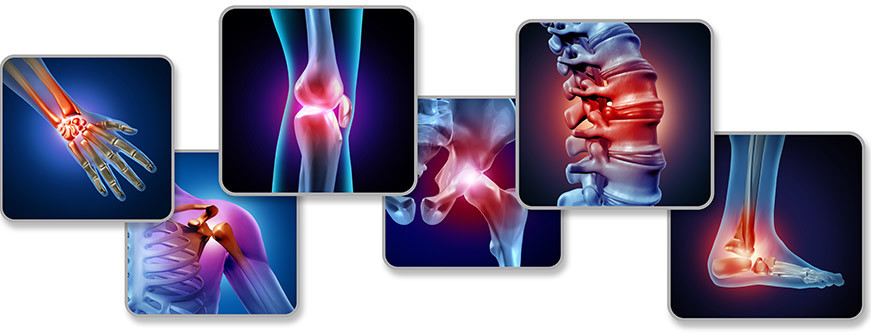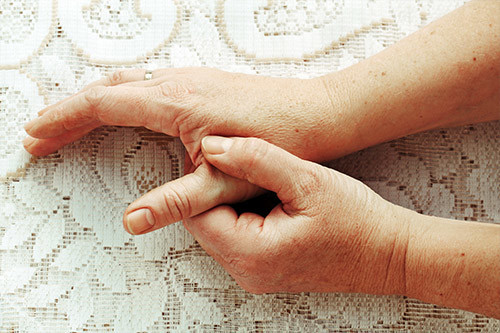
Incessant inflammation can go from discomforting to downright painful very quickly. When it occurs at the joints, it could be a sign of rheumatoid arthritis. This disease can engulf you in pain with a simple bend of the knee or a casual attempt to hold a pen.
What Is Rheumatoid Arthritis?
A healthy, functioning immune system attacks harmful bacteria and viruses to protect the body from illness. However, in autoimmune diseases, the immune system, which is intended to protect you, begins to attack healthy parts of the body. Rheumatoid arthritis is a chronic autoimmune disease where the immune system erroneously attacks the joints, causing inflammation to the tissue lining that protects the joints and enables movement. If untreated, the inflammation can cause pain, swelling, stiffness, and, in severe cases, joint deformity and other life-threatening complications.
Get IVIG Copay Assistance | IVIG Financial Assistance
Causes and Risk Factors
Doctors have not yet been able to identify what triggers the immune system to malfunction and attack the body. However, they have been able to locate a few risk factors associated with rheumatoid arthritis. These include:
- Your sex. According to WebMD, the disease is two to three times more common in women than in men.
- Your age. Rheumatoid arthritis commonly develops in middle age, although it has been found to affect people of all ages.
- Family history. If someone in your family has rheumatoid arthritis, you have an increased risk for the disease.
- Whether you smoke. Smoking cigarettes can increase the likeliness of developing the disease, especially if you have a family history. It has also been shown that smoking can impact the severity of the disease as well.
- Environmental exposure. Those exposed to asbestos or silica have a higher risk for rheumatoid arthritis.
- Your weight. Being overweight can increase your risk of disease.
Those with multiple risk factors are at an even higher risk of developing the disease.
Rheumatoid Arthritis Signs, Symptoms, and Complications
People who develop rheumatoid arthritis will likely experience joint pain and swelling, stiffness typically following long periods of inactivity, fatigue, fever, and loss of appetite. If these symptoms persist for 6 weeks or longer, it could be rheumatoid arthritis, and you should schedule an appointment with your doctor right away.
If untreated, the disease can worsen significantly over time. As the joint lining diminishes, bone erosion can occur, leading to osteoporosis and joint deformity. Furthermore, if the malfunctioning immune system is not controlled, it can affect other important areas of the body including the eyes, skin, mouth, lungs, and more.
Get IVIG Copay Assistance | Your IVIG Treatment Info | Get IVIG Prior Authorization
Getting diagnosed and treated
During your exam, your doctor will look for joint swelling, redness, and warmth in the affected areas. They will also check your reflexes and muscle strength. You will need blood tests to look for signs of inflammation, low red blood cell count, and certain antibody levels.
Once diagnosed, a treatment plan will be prescribed by your doctor to help manage the symptoms and prevent complications. Common medications include anti-inflammatory pain killers, topical pain relievers, and corticosteroids. You may also be prescribed disease-modifying antirheumatic drugs (DMARDs), which work to suppress the immune system’s attack of the joint lining. Biologic response modifiers (a faster-acting type of DMARD) are often used for patients with a more severe form of rheumatoid arthritis and for patients whose symptoms are not controlled with DMARDs. Biologics are administered as an injection or infusion in a doctor’s office. In some instances, joint replacement surgery may be recommended to help improve mobility.
If you suspect you may have rheumatoid arthritis, the best thing to do is see your doctor right away. The earlier the disease is diagnosed, the better you can prevent irreversible damage from occurring.
Contact Us
By submitting, you agree to AmeriPharma’s Terms of Use, Privacy Policy, and Notice of Privacy Practice.
This information is not a substitute for medical advice or treatment. Talk to your doctor or healthcare provider about your medical condition prior to starting any new treatment. AmeriPharma Specialty Care assumes no liability whatsoever for the information provided or for any diagnosis or treatment made as a result, nor is it responsible for the reliability of the content.
AmeriPharma Specialty Care does not operate all the websites/organizations listed here, nor is it responsible for the availability or reliability of their content. These listings do not imply or constitute an endorsement, sponsorship, or recommendation by AmeriPharma Specialty Care.
This webpage may contain references to brand-name prescription drugs that are trademarks or registered trademarks of pharmaceutical manufacturers not affiliated with AmeriPharma Specialty Care.

Dr. Mina Azer, RPh, attended University of Alexandria in Egypt. The most rewarding part of his job is helping others, especially when he gets to collaborate with his coworkers to achieve shared goals. Mina is a proud coffee enthusiast. He also enjoys keeping up with the latest tech gadgets.




